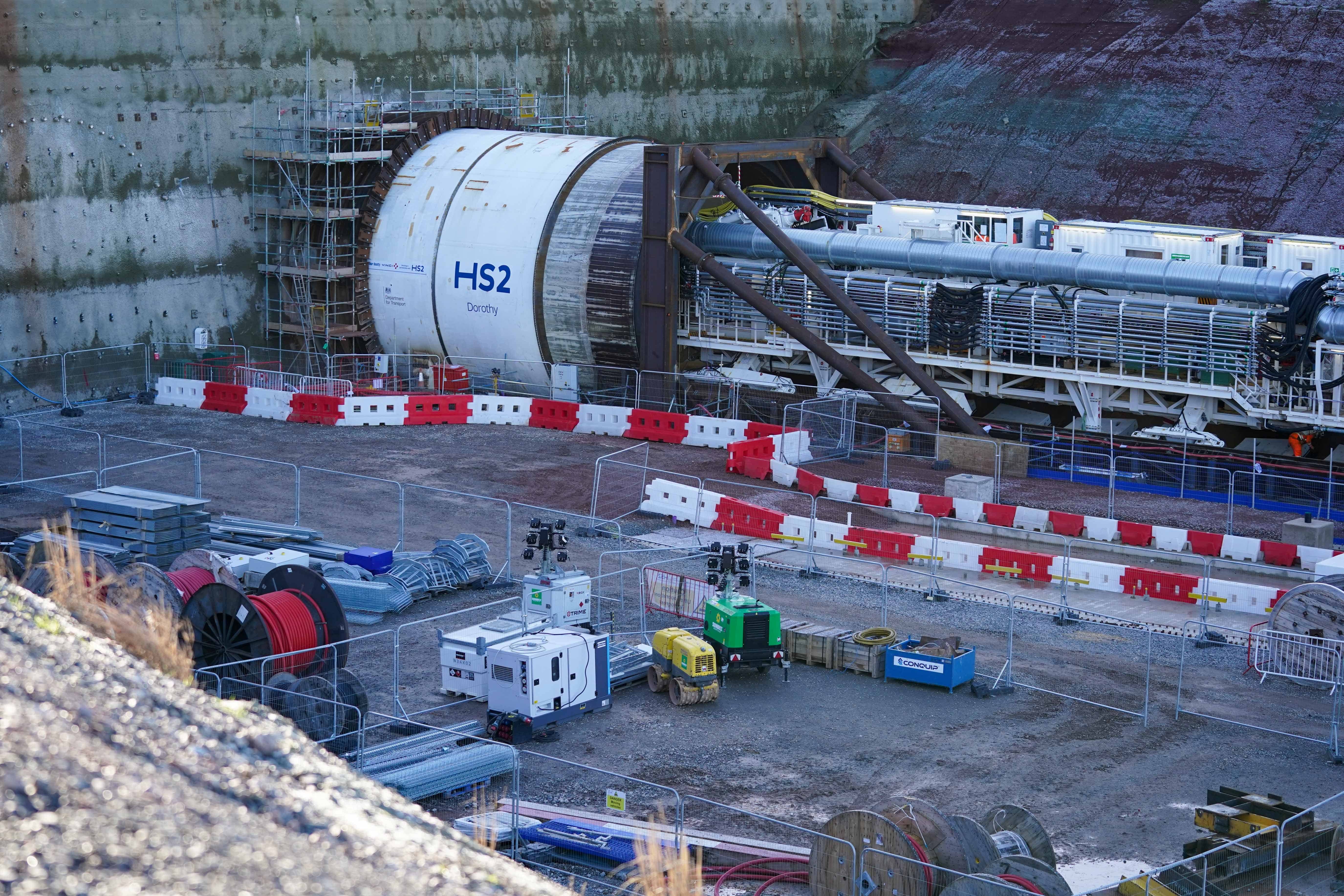HS2: Investing in smaller transport schemes will not solve ‘core issue’ – expert
The former boss of the Strategic Rail Authority said what has been announced ‘doesn’t address’ the main problem.

Scrapping HS2 north of Birmingham to invest in alternative transport projects will not solve the “fundamental problem with our rail network”, according to an industry expert.
Richard Bowker, the former boss of the Strategic Rail Authority, said it was “hard to argue” the schemes listed by Rishi Sunak were “not good ideas”, but he warned they “don’t solve the core problem”.
He told the PA news agency: “The fundamental problem with our rail network in and around the major conurbations is that there are real capacity constraints largely driven by having lots of different kinds of trains on the same lines.
“That’s quite inefficient.
“The point about HS2 was that it was transformational, it was a game-changer, it got the fast stuff off the existing network and allowed it to breathe.
“It allowed it to have more of those other trains on it, whether they’re local, regional or freight.
“What’s been announced today doesn’t address that problem.”
He added: “If we’re not careful, all we’ll end up with is some probably quite good projects.
“They still all need to be planned, they still all need to be costed.
“Really, they’re dealing with things at the edge. They don’t solve that core issue.”
Sir John Armitt, who chairs the National Infrastructure Commission, said: “HS2 was part of a long-term strategy with clear objectives to link up some of the country’s largest cities.
“It had been planned for almost 15 years and under construction since 2017.
“The decision to stop the legs north and east of Birmingham is deeply disappointing, leaving a major gap in the UK’s rail strategy around which a number of city regions have been basing their economic growth plans.
“While it is welcome that the money will be redirected into rail and other transport projects for the North and Midlands, it’s not yet clear how the collection of schemes announced today will address the gap left behind by HS2.”